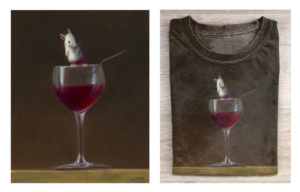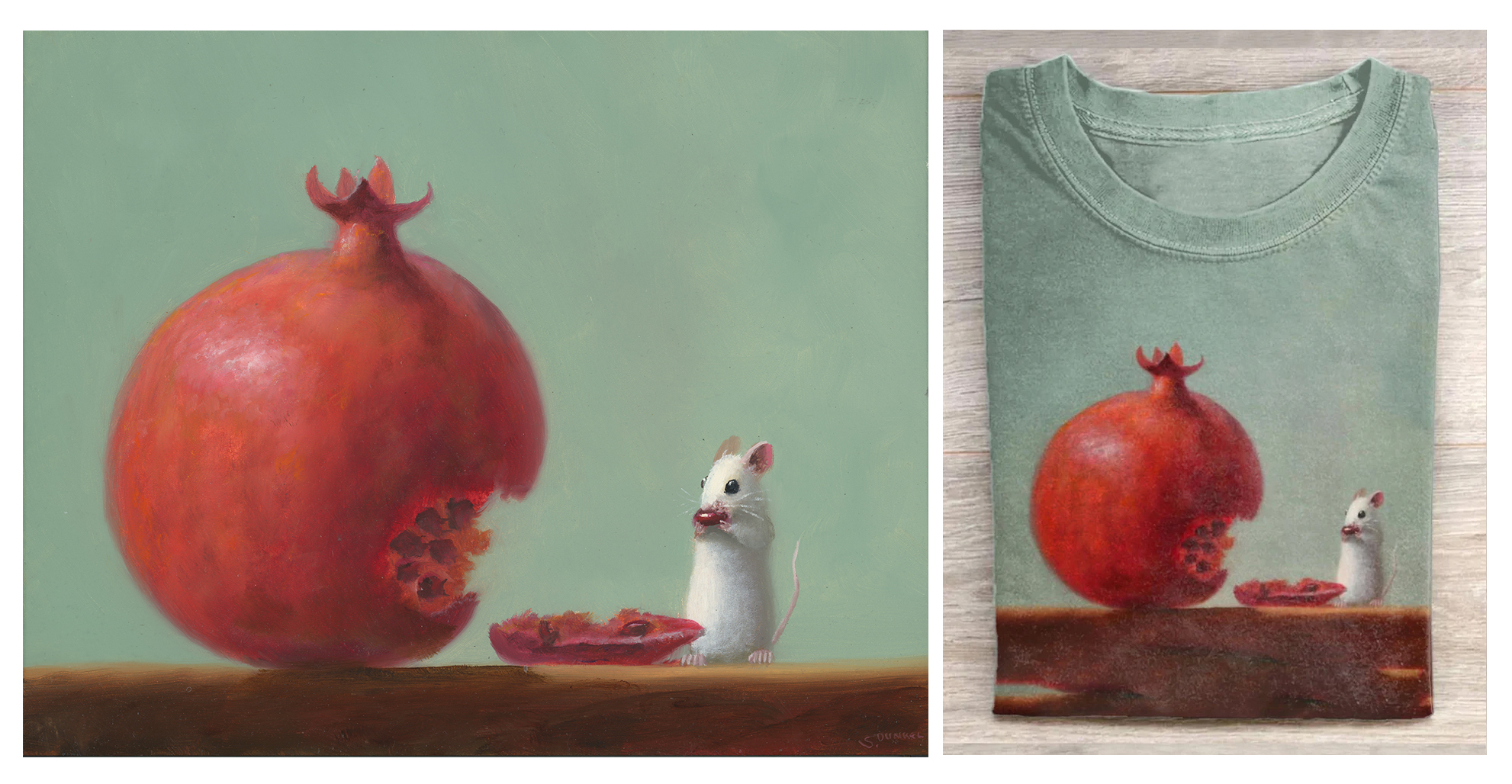I know this issue has existed for a long time, but it is crucial for galleries, artists, hosting sites, the press, and others to elevate their awareness and commitment to combat the persistent problem of image theft, particularly by Chinese companies.
A recent instance brought to our attention involves a Chinese company named Bellenini (https://bellenini.com/collections/%F0%9F%90%ADmouse-hamster), which has brazenly utilized images by Stuart Dunkel to create numerous products, including t-shirts and sweaters. Upon visiting their site, we were astonished to find dozens of such unauthorized reproductions. Furthermore, the works of many other artists, including Lucia Heffernan, whom we represent, were also being exploited without permission.
Bellenini's website prompted us to contact Shopify, their hosting site, for the removal of the images. To our dismay, the response from Bellenini, forwarded to us by Shopify, cited a counter notice under the Digital Millennium Copyright Act (DMCA), allowing the reposting of removed content unless legal action is pursued. The exact terminology is below:
In accordance with Shopify's Digital Millennium Copyright Act (DMCA) policy, the removed content listed in the counter notice may be reposted, within ten (10) to fourteen (14) business days following receipt of the counter notice, unless Shopify first receives notice from you that you have filed an action seeking a court order to restrain the Merchant from engaging in infringing activity, pursuant to section 512(g)(2)(c) of the U.S. Copyright Act.
The insistence that artists or their representatives need to hire an attorney to address copyright infringement is absurd, especially when clear evidence and statements deny authorization to the offending company. Hosting sites like Shopify should demand proof of authorization from the infringing party, especially when undeniable evidence establishes the artist's ownership of the images. In our case, we provided links to the works on our website and included photographs from a recent solo exhibition.
I will add that as of today, most of the items are still not active; however, there are still several that are and we contacted Shopify again about those.
Adding to our concern is the discovery of another site, Lorealwear, utilizing the same images (https://lorealwear.com/search?type=product%2Carticle%2Cpage&q=animal). Given the striking similarities between the two sites, we suspect both are owned by the same individuals in China.
What is even more disheartening is the apparent indifference of the art world press to this issue. Despite reaching out to over 100 press contacts, only two responded, revealing a disconcerting lack of interest in protecting artists. It is interesting to note and some art world news organizations did seem to care when similar accusations were launched at the Chinese fast fashion company Shein (https://rehs.com/eng/2022/04/shame-on-shein/). However, this is likely only because Shein has name recognition, and therefore labor violations and intellectual property theft on their part can catch people’s attention (https://rehs.com/eng/2023/07/the-new-shein-lawsuit/). Bellenini and Lorealwear, though? Never heard of them, so why should we care?
This neglect is particularly dismaying when you realize that press jobs in the art world only exists because of the creativity and efforts of artists. In fact, without artists, there would be no art world. Urgent attention and action are needed to rectify these deficiencies in safeguarding artists' rights.


